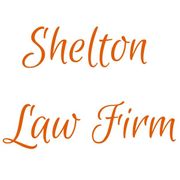Seasoned Attorneys Answer Some of the Most Frequently Asked Questions on Bankruptcy

If you are struggling to make ends meet, and can barely make a dent in the interest your debt is accruing, let alone the actual principal, you may be considering declaring bankruptcy. It’s an effective financial tool for those who have taken on more consumer debt than they can reasonably manage. Before you file, though, it is essential you understand both the pros and cons of doing so.
Below, the seasoned attorneys from Shelton Law Firm in Chariton, IA, answers some of the most frequently asked questions on the subject:
What Is the Difference Between Chapter 7 & Chapter 13 Bankruptcy?
 There are two kinds of personal bankruptcy: chapter 7 and chapter 13. If you have little to no income and no foreseeable way of getting out of debt, you may be eligible to file for chapter 7, which is a form of liquidation bankruptcy that discharges certain kinds of unsecured consumer debt. If you have a regular income and you simply want to reorganize your debt into a more manageable payment plan, you may be eligible for chapter 13. Unlike the alternative, this option does not require you to liquidate your nonexempt assets to pay back creditors.
There are two kinds of personal bankruptcy: chapter 7 and chapter 13. If you have little to no income and no foreseeable way of getting out of debt, you may be eligible to file for chapter 7, which is a form of liquidation bankruptcy that discharges certain kinds of unsecured consumer debt. If you have a regular income and you simply want to reorganize your debt into a more manageable payment plan, you may be eligible for chapter 13. Unlike the alternative, this option does not require you to liquidate your nonexempt assets to pay back creditors.
What Kinds of Assets Are Nonexempt in Chapter 7?
Nonexempt assets are those that can be liquidated if you file for chapter 7. They include property that is not your primary residence, newer vehicles that carry equity, expensive musical instruments that you do not rely on for your business, valuable collections like stamps or coins, investments, valuable artwork, jewelry, and expensive clothing.
What Kinds of Debt Can Bankruptcy Not Discharge?
There are obligations and debts that cannot be discharged. For instance, if you are behind on child support, student loans, or income tax payments, bankruptcy is not the answer.
What Is Involuntary Bankruptcy?
In an involuntary bankruptcy, creditors, and not the debtor, file the petition to start the proceedings. Individuals who are in an especially unstable financial situation may find themselves facing involuntary bankruptcy. When faced with such a scenario, it is essential you seek legal advice to determine the best way to proceed.
If you are considering filing for bankruptcy, turn to the attorneys at Shelton Law Firm for help exploring your options. Their compassionate legal team will help you regain your financial footing and provide valuable counsel. To learn more about the debt relief services they provide, visit their website, and call (641) 774-5956 to schedule an initial consultation with a bankruptcy attorney today.
About the Business
Have a question? Ask the experts!
Send your question

